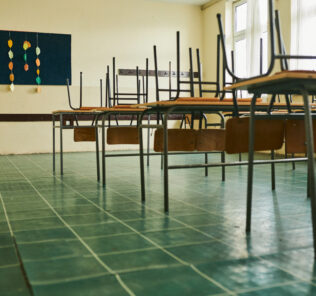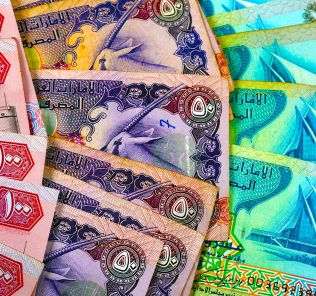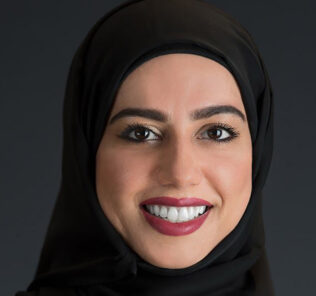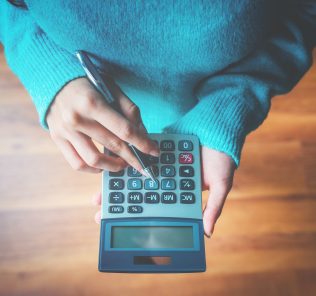The Most Important Change in UAE Education for a Decade. KHDA announces Dubai schools will now be assessed against new ‘happiness’ framework.
Does your UAE school take joy seriously enough? The KHDA has underlined the crucial importance of student and teacher happiness for the success of a school through the launch of its new Wellbeing Framework, announced on 7 December 2022.
The happiness and wellbeing of both children and staff will become an integral part of how the KHDA inspects and assesses schools going forward, according to the announcement. Schools will be rated using a four-point scale ranging from ‘Very high’ to ‘Low’, depending on how successfully student and staff wellbeing are being looked after. The guiding framework includes specific focus areas on which schools will be evaluated, such as how well schools are leading a wellbeing culture; how well they are listening to the needs of their students and staff members; and how well they are creating policies and processes to improve student wellbeing.
Based on international wellbeing research and policies, and schools’ existing wellbeing data, the framework will set standards and enable greater improvement of wellbeing provision over time.
Fatma Belrehif, CEO of Dubai Schools Inspection Bureau, said:
“Building on the legacy and the data provided by the five-year Dubai Student Wellbeing Census, many schools have already incorporated the values of wellbeing into their culture and practices.”
“This framework represents the next stage of our wellbeing journey, enabling us to work more closely with schools, teachers and parents to ensure better learning outcomes and happier, healthier futures for our children. We appreciate the insights of all the school leaders who worked with us to develop the framework.”
International research points to wellbeing as an enabler of improved educational outcomes, enabling students to have more positive experiences of school; higher levels of self-esteem; and increased motivation.
The Government of Dubai has consistently promoted wellbeing in education through its strategic plans as a means to building connected communities and thriving residents.
A transformational decision for children and our understanding of what an “Outstanding” education should really look like.
Happiness has always also been a crucial element in the SchoolsCompared assessment of schools, as evidenced in the highly sought after SchoolsCompared Top Schools Award for Happiest School in the UAE. We have long campaigned on SchoolsCompared for happiness to be placed centre-stage in understanding how to recognise what makes a genuinely outstanding school for children. The move by the KHDA is arguably one of the most significant in its history and should end up being transformational on the quality of education all children receive in schools. For schools that are already focused strongly on child welfare and happiness this will be a game changer in giving them rightful recognition within the inspection regime in this critical area for the first time.
The results of each school’s wellbeing evaluation will be published with its inspection report and parent summary report, both of which are due to be released in 2023.
The 5 Wellbeing principles schools must now embrace
The KHDA says that school leaders should be mindful of five guiding principles as they work to develop further the quality of wellbeing provision and outcomes in their school communities:
- Student and family-focused: understand the uniqueness of each student and their wellbeing journey, considering their personality, character, and context – including their broader experience of family and community.
- Strengths-based: focus on the individual’s personal strengths alongside their existing social and community assets, rather than on their deficits.
- Equitable: develop a thriving, inclusive learning culture, demonstrating a commitment to achieving equity for all.
- Diverse: value and create a diverse school community, recognising it as an important enabler of student wellbeing.
- Collectivist: recognise that every member of the school community is a facilitator and beneficiary of the wellbeing development process.
How schools will be assessed on Wellbeing
The KHDA says that the wellbeing evaluation focus areas will take account of the multi-dimensional approach to wellbeing development. Informed though theoretical models, student wellbeing data, international research, and wellbeing frameworks globally, they will guide the direction for the school’s wellbeing journey and provide the focus for monitoring and evaluation. Schools will be assessed based on how far they satisfy the following goals:
LEADING AND PURSUING WELLBEING
a) Setting and pursuing a wellbeing vision – School culture is informed by a shared vision of wellbeing that influences policy, practice and provision. This vision is clearly communicated to an engaged school community.
b) Sustaining and embedding improvement – The school’s evaluation, monitoring, and review systems inform the ongoing improvement of wellbeing provision.
c) Using data and information – using reliable information and data, leaders collaborate to design and implement provision that actively promotes wellbeing.
d) Creating an enabling environment – the management of routines, activities and resources informs the development of a wellbeing-focused environment.
LISTENING TO AND SUPPORTING STAKEHOLDERS
a) Caring for students – care, guidance, and support is provided by trained and trusted adults in the school to ensure students are safe and have access to wellbeing help.
b)Caring for staff – the school takes action to optimise the wellbeing of their staff.
c) Listening to each other – Feedback from stakeholders influences wellbeing provision.
ENABLING WELLBEING EXPERIENCES AND OUTCOMES
a) Wellbeing and the curriculum – the school uses a holistic approach to wellbeing development, including dedicated curricular programmes and the teaching of social and emotional skills.
b) Choosing safe and healthy lifestyles – students can make safe decisions, healthy choices and adopt healthy lifestyle
c) Students’ wellbeing experiences in schools –
i) external and internal information, including student and stakeholder surveys, show that students feel safe, valued, and engaged at school
ii) during the school day, students demonstrate their wellbeing through their behaviour, attitudes and engagement
Further information – why happiness matters
‘Wellbeing Matters: A guiding framework for the monitoring and improvement of wellbeing in Dubai private schools’ is now available on the KHDA website.
© SchoolsCompared.com. A WhichMedia Group publication. 2022. All rights reserved.








































































Leave a Response